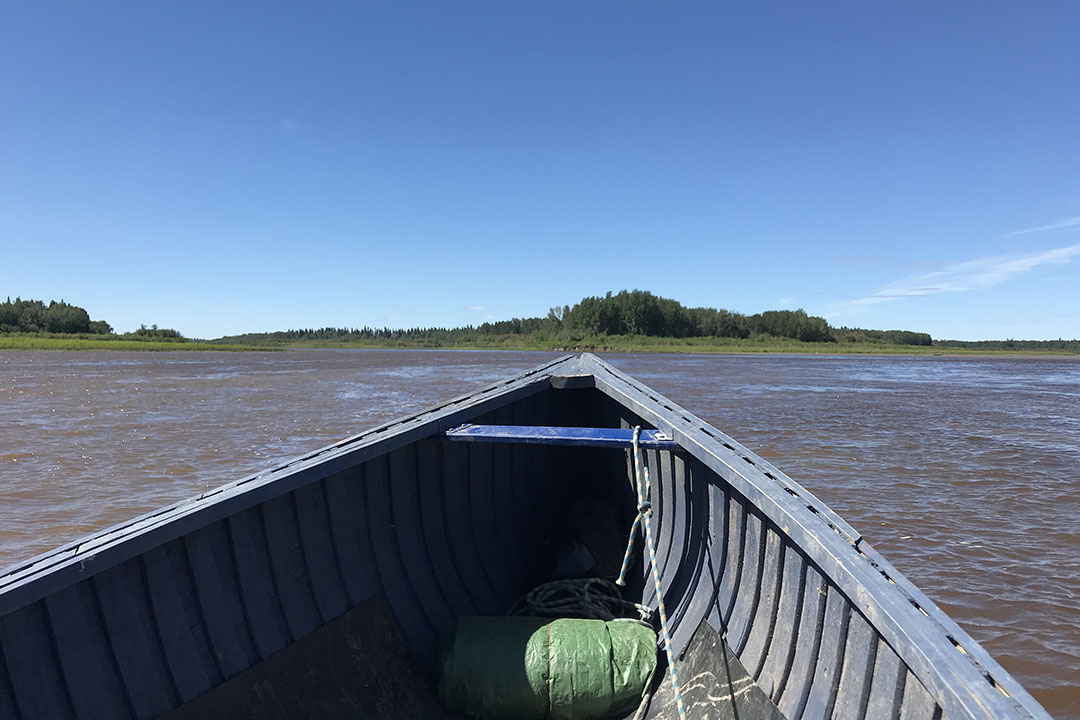
USask data-driven anthropology research project receives international acclaim
As modern development spreads across Canada, First Nations in the Peace River region of British Columbia and Alberta require unbiased, data-driven research to maintain their Treaty-protected cultural and economic traditions.
By Matt Olson, Research Profile and Impact
That’s where University of Saskatchewan (USask) researcher Dr. David Natcher (PhD) and his collaborators step in.
“Several years ago we embarked on a study that would try to make visible the importance of that traditional economy in those communities by providing the First Nations the necessary data and information they needed to make an argument to government and industry,” said Natcher, a professor in USask’s College of Agriculture and Bioresource’s Department of Agricultural and Resource Economics.
Working with First Nations in the Peace River Basin area, Natcher and his team have explored various facets of anthropological research to show, quantifiably, how industrial development and modern industry has and will continue to threaten the land and culture protected by Treaty 8.
The large data sets have allowed Natcher and his team to directly display the long-term ramifications of development to the area. Specifically, they have been able to reflect what Natcher called “tipping points” – or at what point resource development in or near the region would lead First Nations hunters to having to move or leave to continue their Treaty-protected lifestyles.
Natcher’s work in the area has spanned decades in different facets, and the research project is being recognized with the international Society for Applied Anthropology’s 2025 Robert A. and Beverly H. Hackenberg Prize. The prize is awarded to society members and community partners “who have demonstrated lasting and meaningful collaboration to improve the communities where they live and work.”
“It's about doing something meaningful for communities that is actually going to result in sustainable, measurable impacts and improvements,” Natcher said. “I think that’s why we were recognized for this award, because our work was resulting in real change for the First Nations in the Peace River basin.”
There have been decades-long concerns in the Peace River region as to how economic development – forestry, agriculture, energy, recreation and more – could affect the hunting, growing and gathering economies (or “subsistence economies”) of First Nations in the area. The data provided by Natcher’s research has given First Nations something tangible to bring to local and provincial governments to protect their land.
Natcher has worked with the Canadian Hub for Applied and Social Research (CHASR) at USask, which he lauded as being instrumental for supporting this research.
Natcher also pointed to research his group had conducted into moose hunting, which showed that sport hunting was responsible for killing 10 times more moose than First Nations subsistence hunters in the area. Those results led the provincial government to enact sport hunting regulations to protect moose populations.
“It really resonated with the First Nations members who saw that this research ... is actually leading to outcomes,” he said.
Ryan McKay, the land and resources planner for Saulteau First Nations, said he “deeply believes in community-led research” and credited Natcher and his team for the work they’ve done in the area.
McKay, who identifies as Scottish Métis with Cree and Ojibway heritage, said the benefit of having published papers and “trusted information” from university-level research is tremendous, and being able to work in tandem with the community, the provincial government in B.C., and Natcher’s team has produced clear, tangible results.
“The real meaning (of the award) is in the impact on the community and seeing those that deserve the recognition be recognized for their efforts,” McKay said. “The work really has had a major impact in terms of Indigenous rights and food security ... It really is work that has a major impact on Saulteau’s ability to practice their Treaty rights.”
For those in the anthropological field, Natcher said the Hackenburg Prize is a tremendous achievement. He credited all his collaborators within the Peace River communities, as well as CHASR and his fellow researchers, for what they have accomplished.
“Professionally, this is a high point of my career,” he said. “It’s a recognition of the incredible work done by us, the community and CHASR.”
Together, we will undertake the research the world needs. We invite you to join by supporting critical research at USask.

